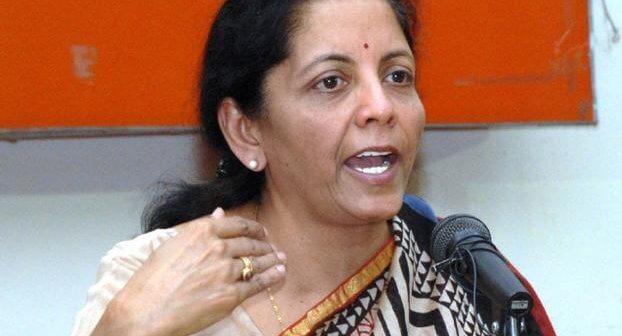(HT)
The world is going through a “very challenging” phase of trade calibrations, Union finance minister Nirmala Sitharaman said on Thursday, warning that intensifying tariff wars and rising protectionist policies threaten to disrupt global supply chains.
Speaking at the 150-year celebrations of the Bombay Stock Exchange (BSE), Sitharaman said that current trade tensions could “increase production cost and create uncertainty in investment decisions across borders,” with ripple effects on financial markets globally, including in India.
Despite these challenges, the finance minister expressed confidence that India would navigate global disruptions effectively, citing the “robustness of Indian institutions and the government’s long-term vision.”
“The global landscape is changing, and changing rapidly,” Sitharaman said. “The recalibration efforts on trade are very-very challenging.”
Her comments come amid escalating global trade tensions following the United States’ imposition of sweeping tariffs on imports from numerous countries, including a baseline 10% tariff that took effect on April 2, with additional country-specific tariffs paused for some nations like India until July.
Sitharaman highlighted India’s economic progress, noting its transition from the 10th largest economy in 2014 to fifth largest today. “India stands at a defining point in its economic journey,” she said, adding that the country would soon become the third-largest economy, though maintaining that position would “require a lot more planning.”
The finance minister offered specific guidance to various stakeholders in the financial ecosystem. She urged market intermediaries and exchanges to “innovate with purpose, but always put the investor at the centre,” advised investors to “stay informed, stay patient, and believe in the long-term promise of disciplined wealth creation,” and called on corporations to embrace “transparency, sound governance, and commitment to shareholder value.” Regulators were encouraged to remain “proactive, agile, and responsive in a world defined by rapid change.”
Elaborating on the government’s vision for India’s capital markets, Sitharaman emphasised inclusivity, accessibility and resilience. “We are building markets that are inclusive, accessible, and resilient,” she said, outlining aspirations for markets that are “deep and diverse, globally integrated, digitally secure, sustainable and inclusive.” The finance minister pointed to several positive indicators in India’s financial markets, including the addition of a record 41 million demat accounts in FY25, bringing the total to 192 million. “Notably, the number of new demat accounts added each financial year now matches the total number of accounts that existed before the pandemic,” she observed.
Corporate growth has also been significant, with the number of companies having a market capitalisation over 1 trillion rupees increasing from just one in 2000 to 81 today. Similarly, companies with over a million investors have grown from seven in 2014 to 55 currently.
“This increase over the last two decades is a reflection of India’s strong economic fundamentals, implementation of crucial reforms and a steadily growing investor base,” Sitharaman said.
Looking ahead, the finance minister connected market development to the government’s broader vision stating: “The story of India is not just about numbers – it is about trust, transformation and countless dreams”.





